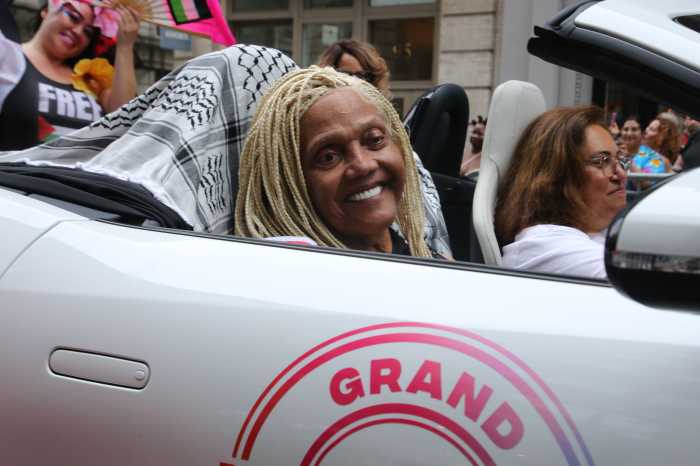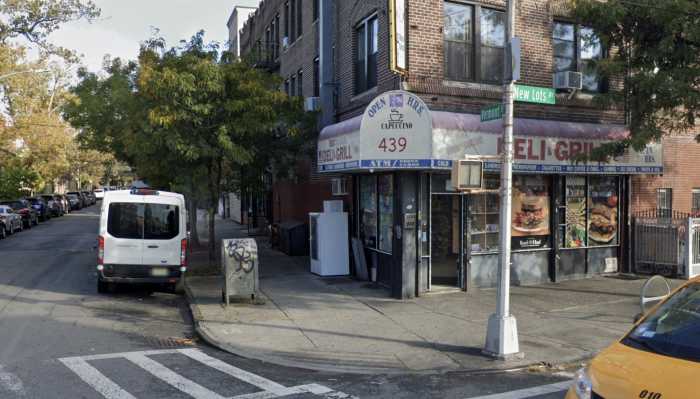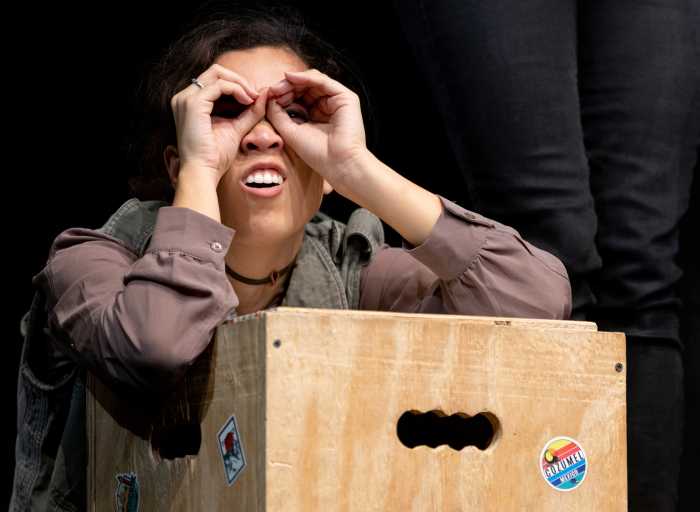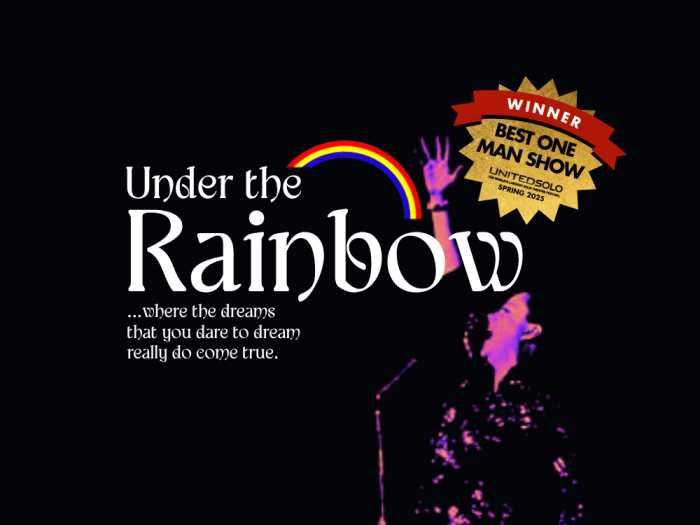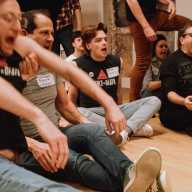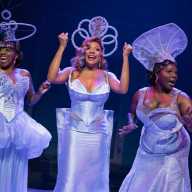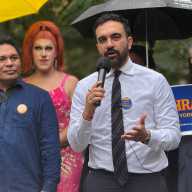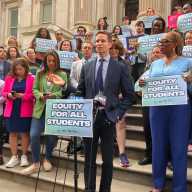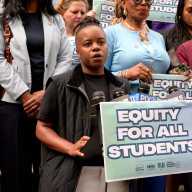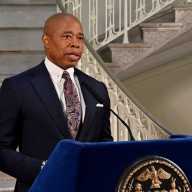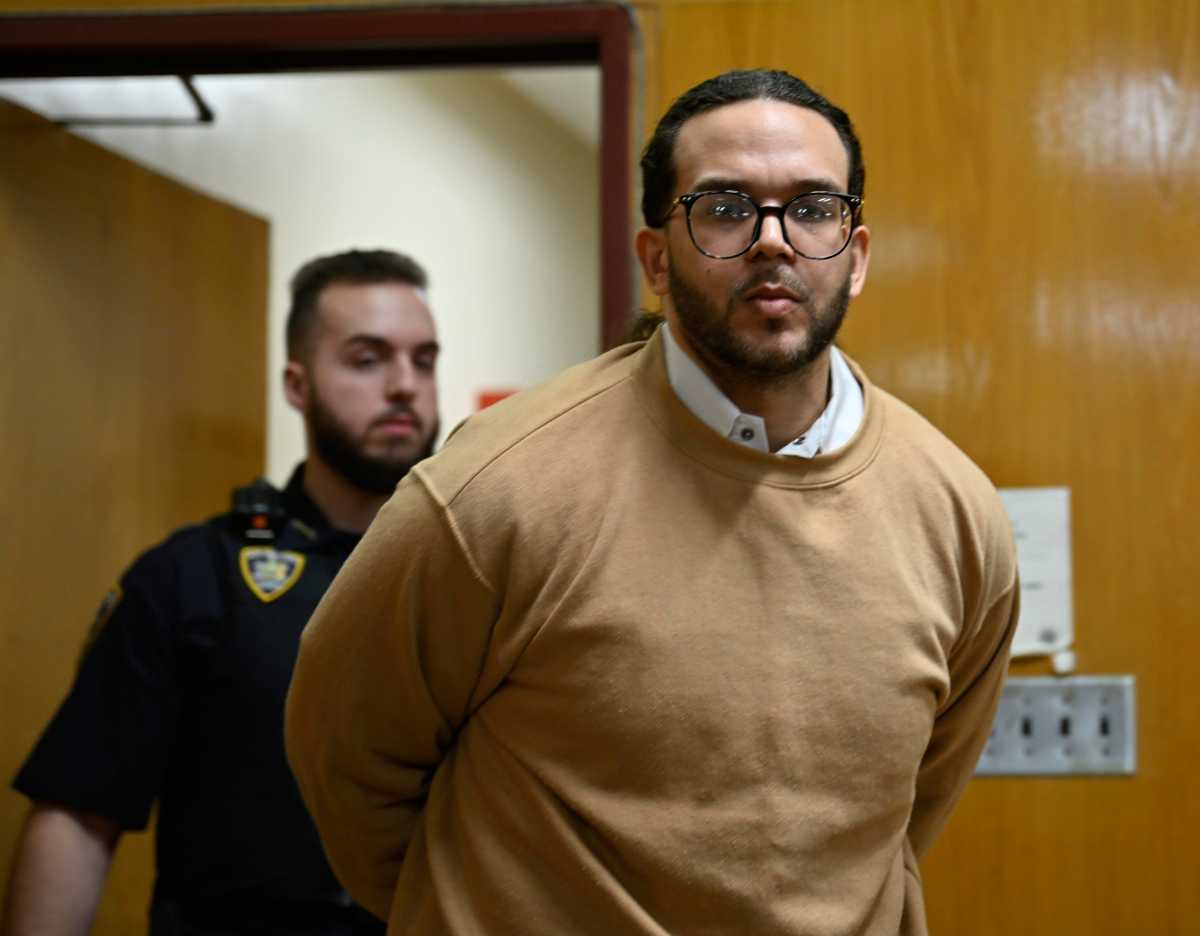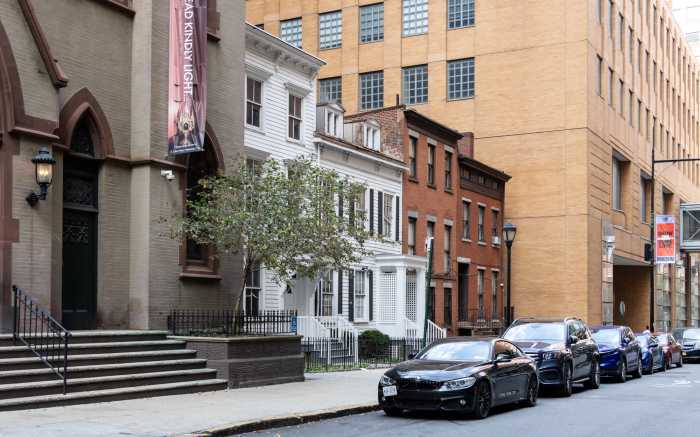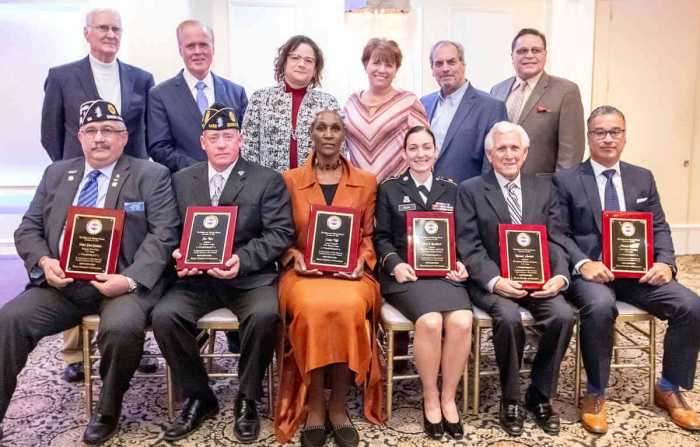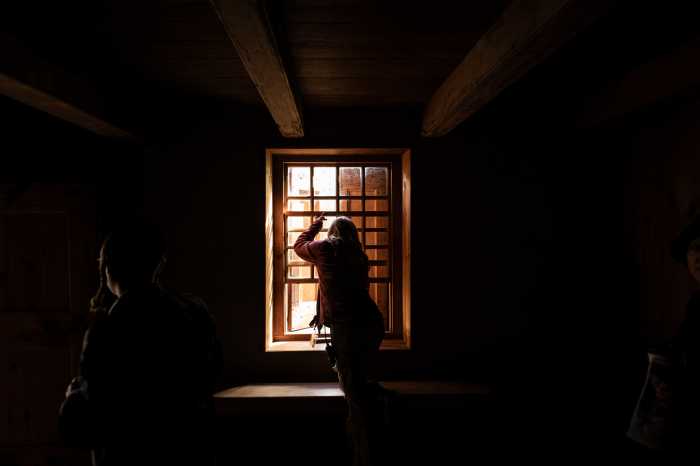BY PAUL SCHINDLER | Barely a month after shutting down Sixth Avenue in Midtown during a morning rush-hour demonstration demanding equal marriage rights for same-sex couples, Queer Rising, a grassroots direct action group, blocked traffic on Third Avenue for roughly ten minutes at the 5 p.m. rush on April 4 outside Governor Andrew Cuomo’s Manhattan office.
A 75-foot banner that five activists handcuffed and chained to each other unfurled across the south side of 41st Street at Third Avenue read, “Marriage Equality NOW! Call Cuomo: 518-474-8390!!!”
Those demonstrators and a crowd of several dozen on hand, some of whom joined them from a coordinated action at Grand Central Terminal just moments before, shouted, “I am… somebody. And I demand… equality. Right here. Right now.”
Within about ten minutes, New York City police had taken the five into custody.
The arrestees were held overnight while being processed at the 14th Precinct on West 35th Street. They did not appear before a judge until late in the afternoon on April 5, at which time they were formally charged with disorderly conduct and obstruction of governmental administration. They left the judge's chambers at 5:40 p.m., more than 24 hours after being arrested, and are due back in court on May 10.
The eight Queer Rising members arrested on Sixth Avenue on March 1 were charged with blocking traffic, given desk appearance tickets, and released within an hour.
Queer Rising identified those arrested as lesbian activist Natasha Dillon, 26; gay Jewish activist Kevin Donohue, 51; straight ally Melissa Kleckner, 31; lesbian student activist Ali Lozano, 20, of Washington, DC; and gay Mormon activist Robert Moore, 30.
In a written release, the group quoted Donohue as saying, “My religious beliefs require that I stand up for the underdog –– even when that underdog is me.”
Less than half an hour before the traffic blockade, at nearby Grand Central Terminal, two drag couples –– Honey Davenport and Coco Devereaux and Frostie Flakes and Honey LaBronx –– marched down the main staircase from Vanderbilt Avenue into the train station’s cavernous waiting area. Demanding an end to the prohibition on their right to marry, the two couples, to the snapping phone cameras of supporters and curious rush-hour commuters, took marriage vows from Kittin Withawhip.
Supporters of the couples handed out palm cards asking onlookers to post their pictures to dragqueenweddings.com.
Elsewhere in the famed transportation hub, Queer Rising members launched balloons aloft toward the ceiling high overhead as they cheered.
When the wedding vows were complete, the two groups joined together and marched over to Third Avenue to join the protesters who had just grabbed control of the intersection.
Queer Rising was formed in the winter of 2009, and has initiated direct action protests and also participated in several electoral campaigns.
Members of the group worked with other grassroots activists in last March’s special election when marriage equality supporter José Peralta, then a Queens state assemblyman, beat ex-Senator Hiram Monserrate, who voted no when the issue came to a vote in late 2009 and was trying to recapture the seat he had been expelled from after a domestic violence conviction.
They were also on the ground in Democrat Tony Avella’s successful challenge to marriage equality opponent Frank Padavan, a longtime Republican incumbent, last fall, also in Queens.
A number of leading marriage equality advocates held a one-hour strategy session with the governor on March 9 and came away impressed by Cuomo’s commitment to pushing a bill through the Legislature before it adjourns in late June.
Some activists, however, faulted the gathering for failing to include representatives of any grassroots groups.
Recalling the role Queer Rising and Marriage Equality New York played in last year’s special election when Peralta triumphed, Cathy Marino-Thomas, a MENY spokeswoman, speculated about a potential vacancy created by the federal corruption indictment of Senator Carl Kruger, a Brooklyn Democrat who voted no in 2009.
“Who will go out to the district to work to get this done?,” she asked.
The State Assembly has approved a marriage equality bill three times since 2007. Since it was defeated by a 38-24 vote by the Senate, the tally of public supporters of the measure has increased by two.



